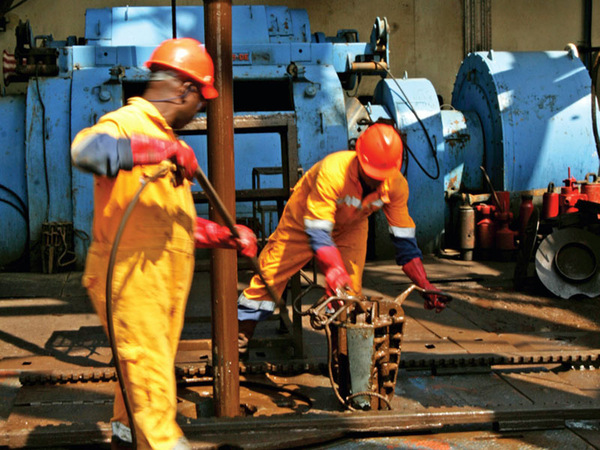Ghana, the new entrant to the world’s exclusive list of oil and gas producers, has decided to follow Nigeria’s foot print in the development of local content law. The Chairman of Ghanaian Parliamentary Committee for Energy and Mines (Oil & Gas), Mr. Moses Asaga said his country was copying the Nigerian approach in local content development to create ways for more
indigenous participation in the development of its oil and gas sector.
Asaga, who was in Lagos as guest speaker at the Petroleum Club meeting, a forum for the Nigerian indigenous oil and gas players in the upstream petrolem sector, disclosed that the local content legislation would also require that Ghanaians hold at least a five per cent equity stake in oil and gas service contracting firms.
He stated: “We are also learning from Nigeria service companies. The service companies in Nigeria are doing very well and we would love to partner with them in other to develop our own servicing companies in Ghana.”
Asaga advised the Nigerian government to improve on its oil revenue management so that the benefits of oil exploration and production would trickle down to the lowest class of Nigerians, maintaining that the Ghanaian government
was not looking on the side of Nigeria on oil revenue management, but was adopting the Norwegian approach to enable the country effectively manage its oil revenue.
He said: “We know what we came to Nigeria to look for, but not for oil revenue management. We came to Nigeria for local content development, but on oil revenue management, we went to Norway and adopted their law word to word because
they are effectively management their oil revenue. For Nigeria’s oil resources to be effectively utilised for the benefit of its economy, the Federal Government needs to establish oil revenue management law.”
He stated that this law would give the country rules and regulations about how the oil revenue generated could be efficiently used, pointing out that Nigeria ’s Minister of Finance should be able to use the oil revenue law as a guide in allocating resources to different sectors of the economy.
Asaga said that Ghana had learnt a lot from Nigeria’s past mistakes in developing its oil and gas sector, explaining that his country, which would want its reserves to reach five billion barrels in five years as more fields start production, had dedicated 30 per cent of oil revenue into the public fund.
He said: “Oil revenue has become useful tool in the development of the Ghana’s economy. Ghana’s sources of revenue has always been from cocoa exports grant. When we discovered oil, it was very easy for us to know the percentage that should come to the country. Ghana has one of the best experiences in solid minerals because we have managed our mining sector very well.
“For instance, Ashanti Gold Mining Company was listed in New York Stock Exchange. We were mining over one million tonnes of gold every year. When Anglo Gold merged with Ashanti Gold, it made it number one gold mining company in the
world. But we did not benefit very much from gold sector because we were accepting royalty of three per cent.
“South African economy was developed with gold resources. Instead, our environment suffered a lot of degradation. But we have learnt our lessons and we are applying it well in managing our oil resources,” he stressed.
He, however, disclosed that Ghana was recently caught off guard when Kosmos Energy tried to sell its stake in the Jubilee field, but added: “Unfortunately, they did not have the necessary laws for such a transaction at the time.
However, they moved fast and drafted a policy to govern such sales.
“Although the deal did not materialise, that has made Ghana to learn a lot of lessons in mining operations management,” the
Chairman of Ghanaian Parliamentary Committee for Energy and Mines noted.




